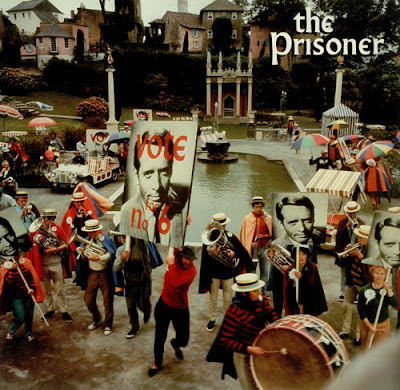One of my favorite music that came out of 1967 for new pop was "Paul Jones Sings Songs From the Film 'Privilege.'" My dad took me to see this film I have to presume sometime in 1968, and it played in a small 'art' movie theater in a building on the Sunset Strip. One had to know about this theater because there was no advertisement or even acknowledgment that this place existed outside of the theater space. Overall the film is not that hot, but I was glued to the screen due to Paul Jones performance, both acting and singing, and of course the beauty of Jean Shrimpton. The story takes place in England when the church decided to match-up with the pop world, circa Paul Jones. A new form of Fascism takes place where the teenager is influenced by the combination of the Church and pop music. The film opens up with a great performance by Paul Jones, doing "Free Me," which has a haunted organ and strings arrangement. A few years later, Alice Cooper would use theatrics that is very similar to the performance in "Privilege."
Beyond that this EP has four songs, including my beloved "Free Me" as well as the theme "Privilege" and 'I've Been a Bad, Bad Boy, and I think the other song "(My Poor Heart is Surely) Breaking" is not in the film, but alas, memory plays tricks. Nevertheless, one can get the full original soundtrack album with no problem, and I see it often online or sold in used record stores around Los Angeles and Tokyo. Still, I prefer the format of the 7" 45 rpm EP, because of the focus on the four songs, which overall is pretty magnificent.
Paul Jones is known to be the lead vocalist for Manfred Mann in the early and mid-1960s, but he took a strange solo career that was equally pop and his natural love for rhythm n' blues. A great voice, and presence, I feel Jones is overlooked these days, and he is a great vocalist. The solo career is spotty, but his work with the band Manfred Mann is brilliant. And his other highlight is "Privilege."













